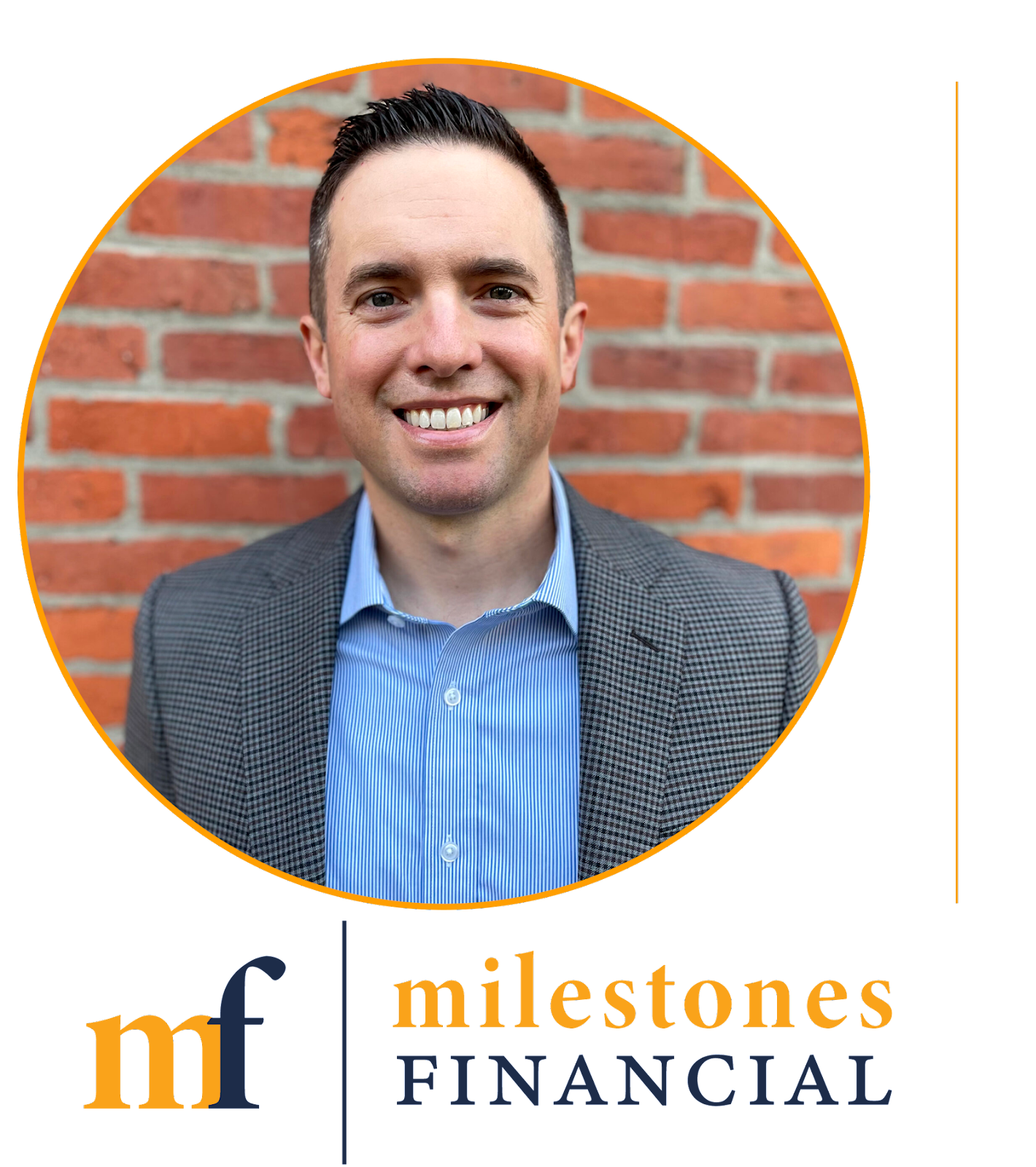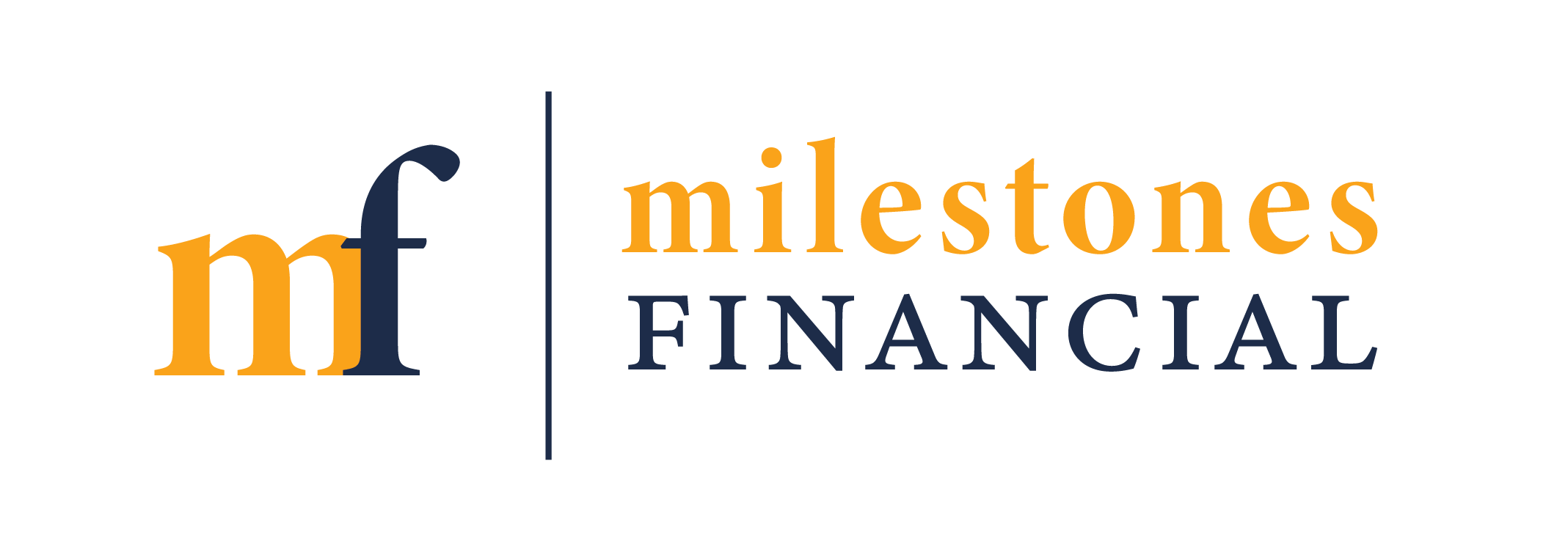Plan of Action Conversation – What You Can Expect

The Plan of Action Conversation is the final step of a two-step process to help you make an informed decision about my financial planning firm, Milestones Financial.
The main objective during this 45-minute phone or video call is for you to decide whether you find value engaging with a fiduciary financial advisor like us.
Are you seeking a change?
The first choice that comes, even before making a plan of action towards your financial goals and objectives, is deciding how, and potentially with whom, you want to navigate an uncertain future in retirement.
For those shifting from a do-it-yourself (DIY) approach to engaging with a CERTIFIED FINANCIAL PLANNER™ professional for financial advice, analysis, and recommendations, it can be a big change.
For those deciding to switch financial advisors, replacing your advisor can temporarily be unpleasant, but it is less uncomfortable than working with the wrong person or firm indefinitely.
If that choice is to work with a financial advisor (or not), congratulations on making a decision you believe will best suit your needs! You have taken the first step and are already making progress.
For those who decide that they would like to work with a CFP® professional in retirement, the next step is to determine if you will be able to provide everything the advisor will ask of you, such as the necessary information required to adequately perform the services called for under the financial planning engagement. You will be more likely to have a rewarding client-advisor relationship by solving your immediate pain point and moving towards achieving your other, longer-term planning priorities.
If we believe that our financial planning services could be right for you, and that we can potentially save you money and help make your life better, we will invite you to become a client.
You can rest easy knowing that this conversation is not a transactional sales meeting. It’s all about helping you reach an outcome you feel good about or find the solution you need. After all, we named this discussion the Plan of Action Conversation for a compelling reason.
6 questions for the Plan of Action Conversation
Most people meeting with a new financial advisor are aware of a particular problem they would like to address, but they also likely need to address feelings of doubt and delay.
There are three questions we ask that addresses doubt and helps us understand what makes you feel dissatisfied. Then, we ask three additional questions that explore the causes leading you to potentially delay by learning how you value action.
Together, this dialogue will provide more insight into your planning priorities and focus on what is most concerning for you right now, which can ultimately shed light on goals or values to include in your financial plan. It will also offer more insight into what to expect from you and how to support you as a client if you do choose to sign up.
The following six questions are the simple agenda to guide our conversation:
- On a scale of one to 10, with 10 being completely satisfied, how satisfied are you with your current investment account balances?
- Share with me a bit about how satisfied you are with your self-confidence when it comes to making financial decisions.
- On a scale of one to 10, where 10 is amazing, how satisfied do you feel about your level of communication about money, retirement, and estate planning with your partner or confidant?
- If you had a magic wand and could wave it to change one thing about your current financial situation, what would you change and why?
- What else can I answer for you about the next steps?
- How would you like to proceed?
Asking these six questions is not some type of parlor trick we use in order for you to become a client of Milestones Financial. Rather, we have noticed that new clients are much likelier to comply with their plans and take action on their tasks after becoming aware of their responses to these questions by understanding their issue more clearly and viscerally.
The bottom line is that we want to help create the desired outcome you are seeking, and we believe the Plan of Action Conversation can help inspire that change.
1. On a scale of 1 to 10, with 10 being completely satisfied, how satisfied are you with your current investment account balances?
This question helps us understand your satisfaction level with your net worth.
After the “Are We a Fit? Introductory Phone Call”, we share a link via email for you to complete our Personal Planning Profile before the Plan of Action Conversation.
The Personal Planning Profile gives us a bird’s-eye view of your current financial situation. Actual account balances are not necessarily important; ballpark numbers can work just fine and may even feel more comfortable for you to discuss. Sharing this information also gives us additional insight into whether we can provide appropriate value in order to justify a financial planning fee.
We aim for you to feel better about your money. Starting this conversation is the first step.
2. Share with me a bit about how satisfied you are with your self-confidence when it comes to making financial decisions.
This question helps us find ways to connect your dissatisfaction with feelings of doubt about your financial decision-making process.
It is not always obvious to people that engaging with a financial advisor will likely involve some level of change in the way they make financial decisions.
Additional follow-up questions could include:
- Who else needs to be involved in your financial decision-making process?
- Tell me about the changes that would be most (or least) appealing to you.
For people who may struggle with making decisions on their own, they may find motivation from the support a financial advisor can offer them. Alternatively, for people who are satisfied with their own financial decision-making process, they may not be as open to change, even when asking for the advisor’s opinion.
Either way, we can learn what to expect from one another should we decide to move forward in a financial planning engagement.
3. On a scale of 1 to 10, where 10 is amazing, how satisfied do you feel about your level of communication about money, retirement, and estate planning with your partner or confidant?
This question revolves around your satisfaction with money connected to personal relationships and the specific challenges you may be facing.
Finding clarity on this topic can serve as inspiration to create meaningful and relevant goals throughout a financial planning engagement.
4. If you had a magic wand and could wave it to change one thing about your current financial situation, what would you change and why?
This question provides us with some unique insight that will help us work most effectively with you in the coming weeks and months if you do choose to become a client.
Additional follow-up questions that we may ask to further explore what may be causing you to delay taking action and how ready you are to receive support could include:
- What would be the first sign that financial planning is working for you?
- Share with me a bit about what you think will be the first moment of relief or triumph once we start working together.
Answering these questions can potentially move you away from the disorganization that you may currently feel and bring the relief that you seek by deciding to take action.
5. What else can I answer for you about the next steps?
This open-ended question helps us address any curiosity you may have about what the next steps may involve.
For anyone who has not worked with a fee-only financial advisor before, they may not know what to expect, triggering feelings of anxiousness that can cause them to delay taking action. That feeling can lead to a perfect manifestation of Benjamin Franklin’s famous quote, “When in doubt, don’t.”
Additional follow-up questions that we may ask to encourage you to talk about your concerns about the process could include:
- Share with me any worries or hang-ups you have about taking the next steps.
- Give me some insight into any questions that have come up for you about getting started and taking the next steps since we have been talking.
Asking these questions about your own questions and concerns can help alleviate some of your potential anxiety about next steps.
6. How would you like to proceed?
We are empowering you to make this decision.
We do not want to create any stress by trying to persuade, sell, or ask you to commit to something. We want to empower you to make this decision on how you would like to proceed with confidence.
People will sign up when they feel ready. If they do not feel ready, they will say so. Either way, our hope is that everyone leaves this conversation with more clarity.
If you say you are ready now, that’s great! We will collect the information needed to fill in an engagement agreement that we will send electronically for you to review and sign.
If you say you are still considering other advisors, we can make a note to follow up with you later. The next step here can simply be a follow-up email just to check in.
If what you truly want does not match our expertise, we will share with you where we think you should look to find a right-fit advisor. By offering this respect, we are trying to create no pressure, but rather a focus on helping you achieve the outcome you want.
The personal satisfaction with taking action now
Rather than focusing on future goals and values, which can leave some people feeling overwhelmed since the reason they came to a financial advisor in the first place was to get help sorting these things out, the Plan of Action Conversation focuses on current concerns.
We want to learn more about what you are most dissatisfied with right now that fuels your doubt, and we want to learn more about how you value action that can help alleviate any tendency to delay.
This conversation will offer us a better understanding of the main pain points you are facing and the ways we can most effectively support you in making the right changes should you decide to sign on as a client.
Discussing your goals and values offers incredible insight, but talking about satisfaction and feelings about taking action now may be a more useful conversation, especially at the start of a financial planning engagement.
People generally prefer to continue down a familiar path over making a change and implementing new behavior (which is what academic researchers call status quo bias). Good financial planning, at its core, is about helping clients implement and maintain favorable changes so that they can live their best lives.
Thank you for your consideration and the opportunity to support with you the change you are seeking to make!
Citations:
Image by freepik

Joshua A. Gallogly, CFP®, EA
Josh Gallogly, CFP®, EA is the Managing Member and Founder of Milestones Financial, LLC in Columbus, Ohio. He serves clients age 50+ who like maintaining full control over their money and provides professional advice on things like reducing their tax bill, investing smarter, and creating retirement income.
